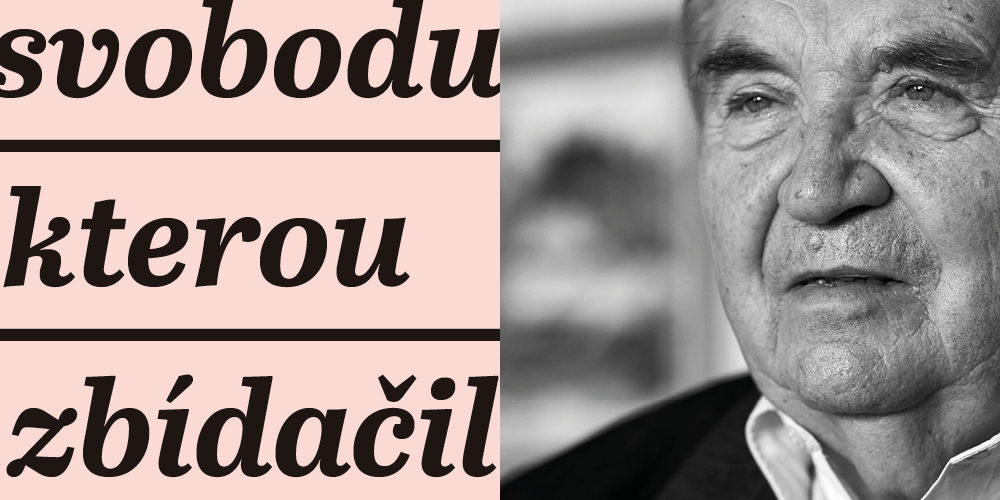Soviet courts sent Levko Dohovič from Subcarpathian Rus to the gulag for ten years. The fourteen-year-old boy from Uzhhorod was put behind bars in 1950. At the age of thirteen, he joined a group that distributed anti-Soviet leaflets around the city with the slogan “Death to Communism.” At the end of the war, Stalin’s government occupied Subcarpathian Rus, bringing subjugation and misery to the former Czechoslovak territory.
Levko was sent to the labor camps in the Archangel labor colony for teenagers on the Konvejer Peninsula on the White Sea. He did not submit, wrote anti-Soviet poems, and tried to escape at the age of sixteen. He dug a tunnel to freedom. When the guards found out, he got another ten years in prison. In the gulag, he met professors who educated him in music, among other things. He was taught by the chief opera conductor from Odessa, Leonid Ishchenko, a professor and violinist from Leningrad, Alekhnovich, and theater teacher Lea Kalmeta. Leonid Dohovič was released in 1956, less than three years after Stalin’s death.
He fled with his mother to Czechoslovakia, where he founded the Poddukelský lidový sbor (Dukla Folk Choir) and the Vesna Choir. He was interrogated many times by the State Security and pressured to denounce others, which he successfully withstood.
He defended himself by saying that if the Soviet KGB had not been able to break him, the StB would not get him to cooperate either.
Surveillance
After February 1948, the communists, following the Soviet model, eliminated civil liberties. They stole from everyone who owned land or other property. They imprisoned thousands of people in labor camps, where many mined uranium ore for the Soviet Union in inhumane conditions. Hundreds of those who were inconvenient were murdered or sentenced to death and executed by the communists (Píka, Horáková, Broj, Slánský, and others). They isolated the country from the free world and introduced censorship. Not everyone surrendered. Brave people founded resistance groups and smuggled refugees across the border. They resisted the incipient totalitarianism with words and deeds.
But it did not start on 25 February 1948. The Communist Party, strengthened by the authority of the Soviet Union with the halo of the “liberator from Nazism,” had already become a political hegemony, as it confirmed by winning the semi-free elections in 1946. The comrades were lying then when they assured voters that they would not go the Soviet way, that “there will be no collective farms in our country.” After the February coup they declared that “the will of the ruling class is above the law.” And this will of the workers was “represented” by the Communist Party. For forty long years the country submitted to the will of the leaders of the Soviet Union. The Communist Party was subject to directives from Moscow on fundamental issues. Soviet advisers oversaw the course of fabricated show trials. However, none of this removes the main responsibility from the domestic actors for the widespread crimes that characterized the domestic totalitarian system.



